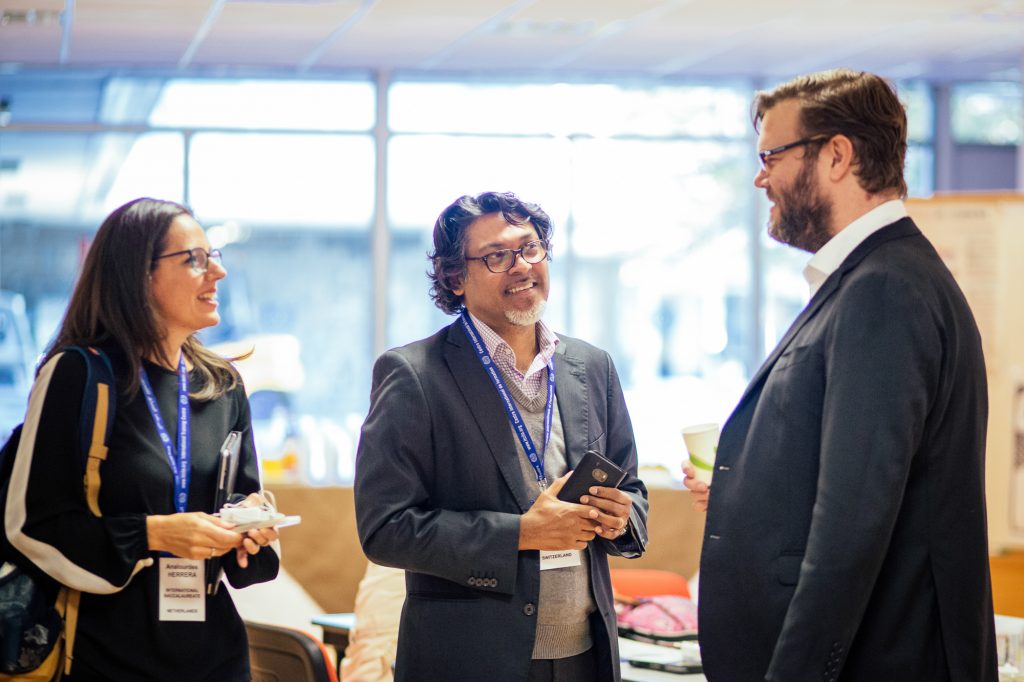Heard Seen Respected (HSR)

Practice deeper listening and empathy with colleagues
Overview
This activity stimulates participants’ ability to empathise through three simple steps: listening, recognising and responding, with the beneficial element of compassion. The art of listening increases the level of mutual trust among members of the same group. Strengthened by an HSR give and receive experience, participants become more conscious and responsive listeners.
How to use it
- Reveal how common it is for people to experience not being heard, seen or respected and for people to behave in such a way as to make others feel they are not being heard, seen, or respected.
- Improve listening, tuning, and empathy among group members.
- Notice how much can be accomplished just by listening.
- Rely on each other more when facing confusing or new situations.
- Offer catharsis after strains in relationships.
- Help managers understand when listening is more effective than trying to solve a problem.
- During regular meetings, to improve the quality of listening to and empathising with each other.
- For transition periods when questions about the future are unanswerable (e.g. post-merger integration, market disruptions, social upheaval) and empathetic listening is what is needed.
- When an individual or group has suffered a loss and needs a forum to share their grief or despair.
- To improve one-on-one reporting relationships throughout the organization.
How to apply it
Start:
Invite participants to share a story about a time they weren’t heard, seen, or respected.
Setting:
Chairs facing each other, a few inches between people’s knees. Everyone speaks in turn, in each role, as a storyteller and a listener. Participants work in pairs during the interview, then in groups of four to reflect on what happened.
Time/Steps:
- 3 minutes: Introduce HSR purpose – to practice listening without trying to fix anything or make any judgments.
- 15 minutes: One at a time. Each person has 7 minutes to share a story about not being heard, seen or respected. Advise the listener to avoid any interruptions other than asking questions like “What else? Or, “What happened next?”
- 5 minutes: Participant shares the experience of listening and storytelling with his/her partner.
- 5 minutes: In a group of four, participants share reflections using 1-2-4-All, asking “What patterns are revealed in the stories? What importance do you assign to the pattern?”
- 5 minutes: Ask the whole group, “How could HSR be used to address challenges revealed by the patterns? What other learning methodologies could be used?
How to adapt it
- If it seems appropriate to the group dynamics, replace the word respected with “loved” (i.e., the agape form of love — seeking the highest good in others without motive for personal gain).
- Link it to other methodologies that help with mending relationships: Troika Consulting, Helping Heuristics, Generative Relationships – STAR, Appreciative Interviews (AI).
Tips
- These tips should be shared with the participants,
- “Your partner may be ready before you. The first story that pops into mind is often the best.”
- Make it safe by saying, “You may not want to pick the most painful story that comes to mind.”
- Make it safe by saying, “Carefully protect the privacy of the storyteller. Ask what parts, if any, you can share with others.”
- Suggest, “Notice when you form a judgment (about what is right or wrong) or an idea about how you can help, then try to let it go.”





